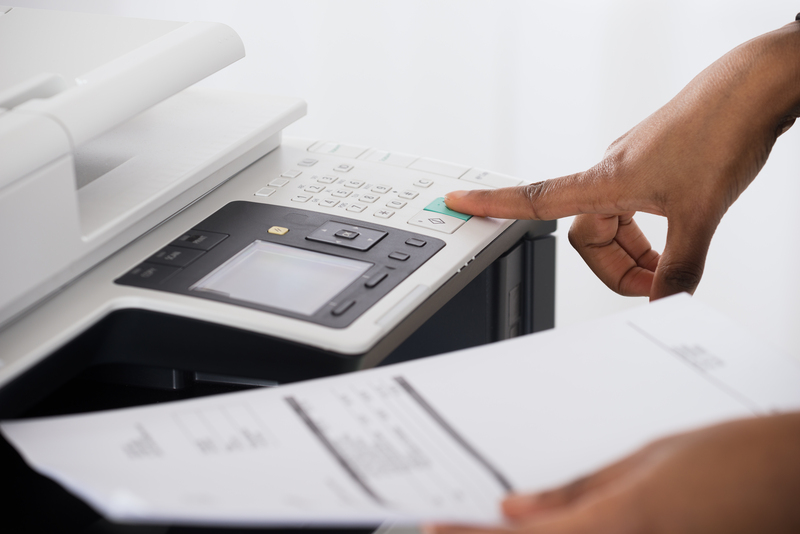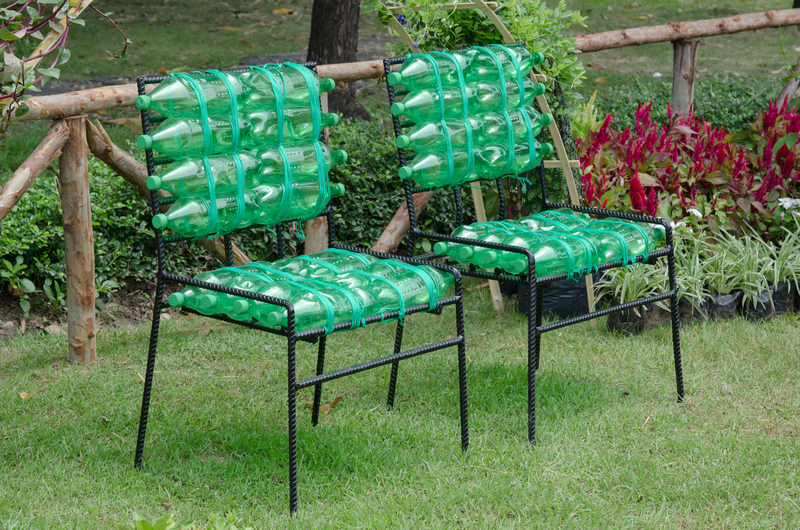Smart Moves to Save Money on Bulky Waste Disposal
Disposing of large, heavy, or awkward items like old furniture, mattresses, and appliances can be daunting, not just physically but also financially. The cost of bulky waste removal often surprises homeowners, landlords, and even businesses. Fortunately, with the right knowledge and a strategic approach, you can save money while ensuring eco-friendly disposal. This comprehensive guide delves into the most effective, smart moves to make your bulky waste disposal both cost-efficient and hassle-free.

Why Is Bulky Waste Disposal Expensive?
To appreciate the savings tips, it's vital to understand what drives disposal costs. Bulky waste - such as sofas, refrigerators, or construction debris - requires special handling. Unlike regular rubbish, it can't simply be tossed in a bin for weekly collection. The following factors contribute to the high costs:
- Labour-intensive: Heavy lifting and transport often require extra manpower or specialized equipment.
- Logistics: Large items need larger vehicles and more trips to landfill or recycling centers.
- Disposal fees: Many local councils and private services charge by weight or volume.
- Environmental regulations: Some items, like white goods or electronics, require responsible recycling due to hazardous components.
Smart Strategies to Save on Bulky Waste Removal
Ready to save money on bulky waste disposal? Implement these proven strategies and tips to avoid falling into costly traps.
1. Assess and Sort Your Bulky Waste
The first, most often overlooked step in saving is sorting waste. It's easy to lump everything together, but taking time to categorize can unlock savings:
- Sellable items: Furniture and appliances in decent condition could fetch money on local sales platforms or social media marketplaces.
- Donate: Charities, shelters, or reuse organizations may offer free collection for usable goods, making your waste someone's treasure.
- Special disposal: Some items (like chemicals or electronics) require unique handling, so segregating these prevents added fees during collection.
- Reusable materials: Timber, metal, or bricks from renovations might be repurposed - either by you or via community sharing groups.
2. Check Free or Low-Cost Council Collection Services
Many municipalities offer bulky item collections either for free or at a nominal fee, especially for residential customers. Before booking a private service:
- Browse your council's website for scheduled collection days or annual curbside pickups.
- Understand eligibility - Some serial numbers or proofs of residence may be required for free disposal.
- Book early, as there can be a waiting list for peak periods like spring cleaning or post-Christmas clear-outs.
- Avoid fines by following guidelines on item types, placement, and volume limits.
3. Compare Private Bulky Waste Disposal Services
If public collections don't accommodate your needs or timeline, private waste contractors are an alternative. However, fees vary widely:
- Get multiple quotes - Use national directories or comparison sites to find reputable, cost-effective providers.
- Ask the right questions: Does the quote include labor, disposal charges, and all taxes? Are there "hidden" costs for stairs or oversized items?
- Share loads - If neighbors are decluttering too, pooling items can reduce per-person costs with some companies.
- Clarify recycling practices - Reputable firms recycle more, reducing landfill fees (and environmental impact).
4. DIY: Save with Self-Disposal at Local Recycling or Transfer Centers
Handling bulky waste yourself is one of the most affordable options if you have a suitable vehicle and don't mind some heavy lifting.
- Check local tip rules: Most centers accept bulky items from residents for free or a small charge, but may restrict commercial vehicles or certain waste types.
- Borrow or rent a van/trailer from friends, family, or local hire companies - often cheaper than a full-service collection.
- Sort before you go to speed up drop-off, since many centers have dedicated skips or recycling bays for electronics, wood, or metal.
- Plan for safety - Secure loads and enlist help, especially when moving heavy or awkward objects to avoid injury or damage.
5. Opt for Dismantling and Flat-Packing
Many disposal services charge by the amount of space your waste occupies in their truck. Dismantling furniture or appliances can dramatically reduce this volume, saving you money.
- Unscrew parts of beds, wardrobes, or sofas to flatten and stack them more efficiently.
- Remove doors/shelves from whitegoods - not only does this save space, but it's safer for transport and required by some centers.
- Bundle smaller items together using rope or tape for easier handling and loading.
6. Reuse, Repurpose, or Upcycle Bulk Items
One man's trash is another's treasure! Before putting bulky items out for waste disposal, consider:
- Listing on free cycle groups, local Facebook pages, or platforms like Gumtree, Freegle, or Craigslist for pickup by others.
- Turning old furniture into garden planters, pet beds, or workshop benches with DIY tutorials.
- Donating materials to local schools, theaters, or workshops where parts like wood or sheet metal may be needed for projects.
- Community swap events or "take it away" days hosted by charities or municipal groups.
7. Avoid Fines and Fly-Tipping: Know Legal Requirements
Illegally dumping bulky waste (known as fly-tipping) carries hefty fines. Ensure you're always in compliance:
- Document disposal - Keep receipts if you use a waste company or recycling receipt from the tip, especially for business waste.
- Check for licenses - Anyone collecting bulky rubbish must carry a waste carrier license; check on the Environment Agency's register in the UK or local equivalents.
- Don't leave items on the curb outside scheduled collection; you could be liable for littering penalties.
When Is Bulky Waste Removal Tax-Deductible?
If you're a landlord, business owner, or managing end-of-lease clear-outs, bulky waste costs might be tax-deductible. Always:
- Keep clear invoices breaking down disposal services.
- Consult with your accountant or HMRC/IRS guidelines regarding property maintenance expenses.
Seasonal Tips for Cheaper Bulky Waste Disposal
Plan for Spring and Autumn Clear-Outs
Waste disposal prices can spike during peak seasons. To maximize savings:
- Book ahead during predictable busy periods
- Consider waiting for council schemes linked to Christmas, Easter or post-renovation sale periods
- Join forces with neighbors for block or building-wide clear-outs, qualifying for bulk discounts from service providers.
Student or Short-Term Let Savings
End-of-term is notorious for dumped mattresses and broken desks near student accommodations. To save:
- Arrange property-wide pickups with landlords or housing officers, splitting the cost.
- Alert local charities to collect useable goods at term's end, often for free.
What to Avoid: Common Mistakes That Cost More
For the best savings on bulky waste removal, avoid these pitfalls:
- Last-minute bookings - Rush fees and limited availability drive costs up.
- Ignoring weight restrictions - Some companies charge extra for heavy items (tiles, bricks, etc.) compared to "soft" waste like broken furniture.
- Not checking disposal credentials - Fly-by-night collectors may disappear with your money and illegally dump your rubbish (leaving you liable).
- Underestimating time/effort to DIY; hiring a skip or van may be cheaper and faster in the long run for multi-item or multi-load clearances.
Bulky Waste Disposal: Frequently Asked Questions
What counts as bulky waste?
- Large furniture (sofas, beds, wardrobes, tables, mattresses)
- Domestic appliances (fridges, washing machines, cookers)
- Garden waste: sheds, fencing, large branches
- Building and renovation debris
Can I leave bulky waste on the street?
- Not unless arranged: Leaving items outside without council permission is considered fly-tipping and can result in hefty fines.
How do I find a reputable bulky waste remover?
- Search for local, reviewed providers online (Google, Trustpilot, Yell, etc.)
- Check for waste carrier licenses (local authority or environmental agency registers)
- Ask about recycling policies and demand an invoice/receipt

Key Takeaways: Bulky Waste Disposal on a Budget
- Assess, declutter, and sort your bulky waste for potential sales, donations, or recycling.
- Use council or municipal collection schemes wherever possible for free or low-cost disposal.
- Compare multiple providers, ask about all-inclusive pricing, and consider sharing service with neighbors to split costs.
- DIY trips to local tips or recycling centers can offer the biggest savings - if you have transport and help.
- Stay legal and avoid fines by using licensed firms and never fly-tipping your bulky items.
Conclusion: Make Smart Moves for Efficient, Budget Bulky Waste Disposal
The challenge of bulky waste disposal doesn't have to mean hefty expenses. By planning ahead, maximizing council and charity options, sorting and dismantling items, and always choosing reputable, eco-conscious providers, you can eliminate clutter without breaking the bank. Embrace these smart strategies for a greener environment, safer neighborhood, and the healthiest wallet possible.
Ready to clear your clutter? Follow these _smart moves_, and you'll both save money and do your part for the community and planet!